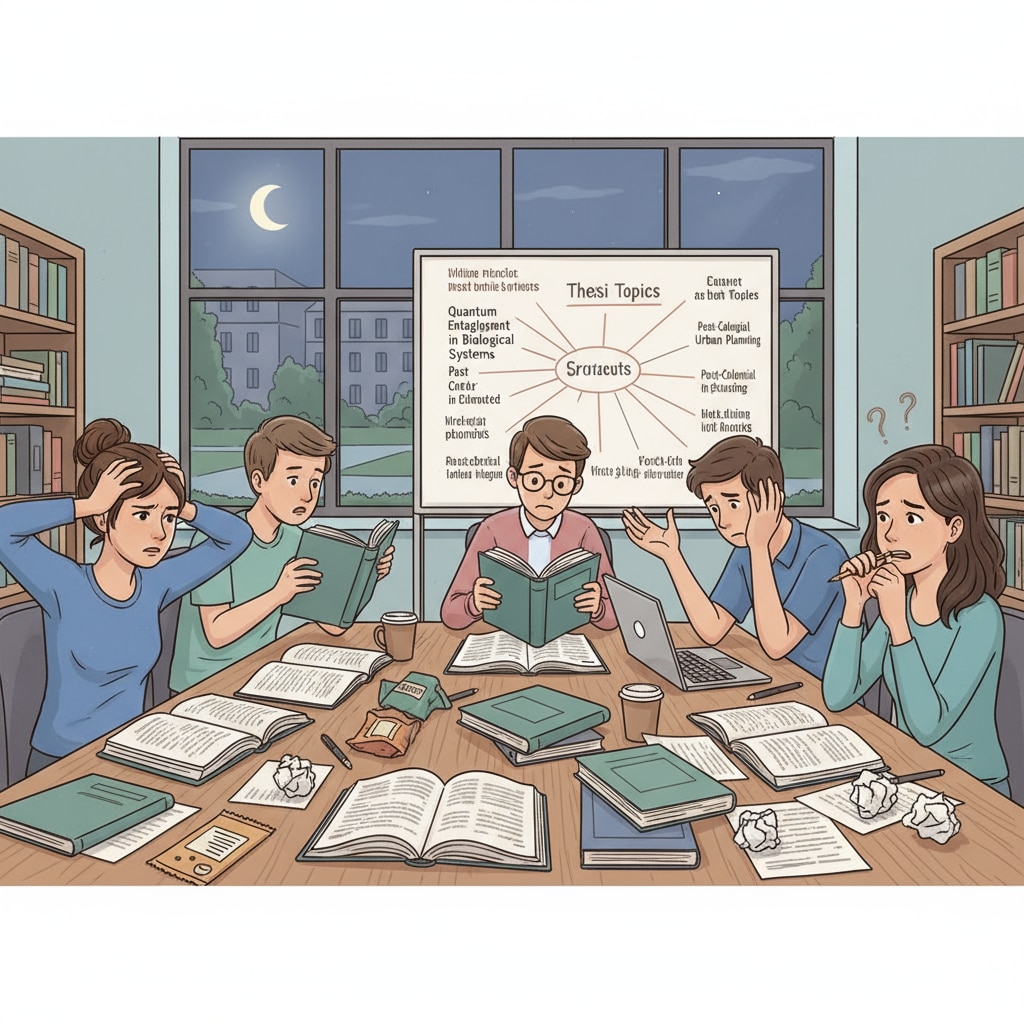Academic burnout, master’s thesis, and loss of interest are common challenges that many postgraduate students encounter during the thesis topic selection phase. The pressure to choose a meaningful and feasible topic, combined with the long – term academic stress, can lead to a state of burnout. This article aims to explore the roots of this burnout and provide practical strategies to help students navigate this difficult period and turn the thesis topic selection into a point of self – growth and academic value.

The Roots of Academic Burnout in Thesis Topic Selection
One of the main causes of academic burnout during thesis topic selection is the overwhelming amount of information. With the vast resources available in academic databases, students often feel inundated. For example, when searching for potential topics in a specific field, they may be faced with thousands of research papers, making it difficult to narrow down their focus. Academic stress on Wikipedia further exacerbates this situation. The fear of choosing the wrong topic, combined with the pressure to contribute something new to the academic field, can also lead to a loss of interest. Students may start to question their ability to conduct in – depth research, which gradually erodes their enthusiasm for the topic selection process.
Reigniting Research Passion Amidst Burnout
To overcome academic burnout and regain interest in master’s thesis topic selection, students can start by revisiting their initial research interests. What initially attracted them to their field of study? Maybe it was a particular case study, a social issue, or a technological innovation. By going back to these roots, they can find a spark of motivation. Additionally, engaging in discussions with peers and professors can be highly beneficial. Sharing ideas and listening to different perspectives can open up new avenues of thought. For instance, a conversation with a professor who has extensive experience in the field may provide valuable insights that help students refocus their research interests. Graduate education on Britannica

In addition, setting small, achievable goals can also help students regain control of the topic selection process. Instead of trying to come up with a perfect topic immediately, they can break the task into smaller steps, such as conducting preliminary literature reviews, identifying research gaps, and formulating initial research questions. This way, they can build confidence gradually and rekindle their passion for research.
Readability guidance: As seen above, we have used short paragraphs to make the content more digestible. Each H2 section presents key points in a clear manner. We have also incorporated external links to reliable sources to enhance the credibility of the information. Transition words like ‘for example’, ‘additionally’ have been used to make the flow of the article smooth.


